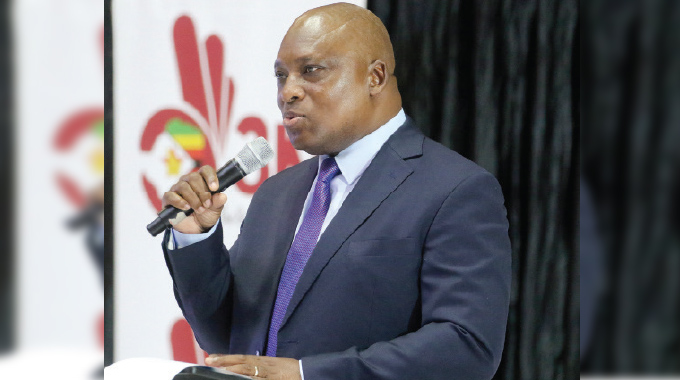Scrapping low-cost accounts bank charges to drive saving culture

Nqobile Bhebhe, [email protected]
Economic analysts have praised the Reserve Bank of Zimbabwe (RBZ) for its recent decision to eliminate bank charges for low-cost accounts noting that the move has the potential to boost saving culture and promote financial inclusion.
This move, announced by the RBZ governor, Dr John Mashayavanhu, in his first Monetary Policy Statement, aims to address the long-standing issue of maintenance fees burdening depositors with negative balances.
By doing so, the RBZ hopes to encourage a culture of banking, foster financial inclusion and reinvigorate confidence in the banking sector.
In the past, depositors have felt that banks were “robbing” them of their hard-earned money through repeated fees on withdrawals.
These charges have been a burden for account holders, especially those with low-cost accounts.
The banking sector has cashed in on interest income although the contribution of non-interest income to total banking sector income has continued to strengthen over the past few years as banks diversify sources of income.
In the year ended December 31, 2023, all banking institutions registered profits with a reported aggregate of $5,77 trillion, figures from the Reserve Bank of Zimbabwe show.
The growth in the banking sector income largely emanated from non-interest income, which accounted for 84,27 percent of total income ($10,45 trillion) as of 31 December 2023
In his inaugural Monetary Policy Statement last week, Dr Mashayavanhu said to avoid incidences of low-cost accounts being charged maintenance fees to the point where accounts reach negative balances and in the process, prejudice depositors and discourage potential savings, bank charges are scrapped.
“Cognisant of calls by the banking public for affordable and reasonable bank charges, the Bank is with immediate effect directing all banking institutions to put exemption clauses on monthly maintenance or service charges for both FCA and ZiG deposit accounts that maintain a consecutive minimum daily balance of US$100 and below or its equivalent in ZiG for a period of up to 30 days,” he noted.
“This will avoid incidences of low-cost accounts being charged maintenance fees to the point where accounts reach negative balances and, in the process, prejudice depositors and discourage potential savings.
“The Bank shall continue to monitor the pricing of banking products and services, as well as enforce the pricing framework agreed upon with the Bankers Association of Zimbabwe (BAZ). It is envisaged that as banking institutions embark on accelerated digital transformation, the institutions will achieve operational efficiencies which will impact positively on the cost of some banking services.”
After savings were wiped out by hyperinflation in years leading to a multi-currency regime in 2009, there was a dearth of savings, with the banking public now preferring to keep their money under their pillows or buy assets such as residential stands.
In separate interviews, economists said the directive is a positive one, saying the central bank has to come up with monitoring and enforcement mechanisms to ensure that banks implement the directive.
“I am very optimistic that our banking sector is going to comply with this directive on low-cost accounts which will help our public to retain most of their salary earnings as disposable income,” said Mr George Nhepera.
He said this is part of the building block of the central bank aimed at restoring a saving culture in the country.
“Even deposit interest rates have been made more attractive for investment and this tied or linked to the gold price, will certainly go a long way in rebuilding trust and confidence in our new currency and financial sector. Bank compliance has always been not a problem in our country. Remember as part of terms and conditions, these are put on display in the national newspapers and banking halls.”
Lupane State University institutional analyst and economist, Shynet Chivasa, is of the view that the directive to remove bank charges in small accounts may imply shifting the banking cost to the banking sector.
Said Chivasa: “This might pose a challenge as banks might be forced to either lose or charge exorbitant fees to individuals whose accounts are subject to bank charges.
“The stability of the currency will determine if savings will receive interest rates. RBZ will need to come up with a monitoring and enforcement mechanism to ensure that banks implement the directive.
“The directive may result in some sectors of the economy being financially excluded as banks will shy away from individuals with small account balances.”
She noted that more needs to be done to cushion banks if the directive is to promote financial inclusion.
Financial inclusion is defined as the availability and equality of opportunities to access financial services. It refers to a process by which individuals and businesses can access appropriate, affordable and timely financial products and services.
The Government launched the National Financial Inclusion Strategy II (NFIS II) in 2022 to deepen the use of financial products in the informal sector to achieve the aspirations of the National Development Strategy 1 (NDS1) and make those in the sector more prosperous as a result.
NDS1, among other priorities, aims to eradicate poverty and empower women, and youths, promote sustainable livelihoods for the less privileged and support people living with disability.
NFIS II rides on the successful implementation of (National Financial Inclusion Strategy I (NFIS I) that ran between 2016 and 2021 focusing more on access to financial services by low-income and marginalised groups such as women, youths, rural communities, smallholder farmers as well as micro, small and medium enterprises.












Comments